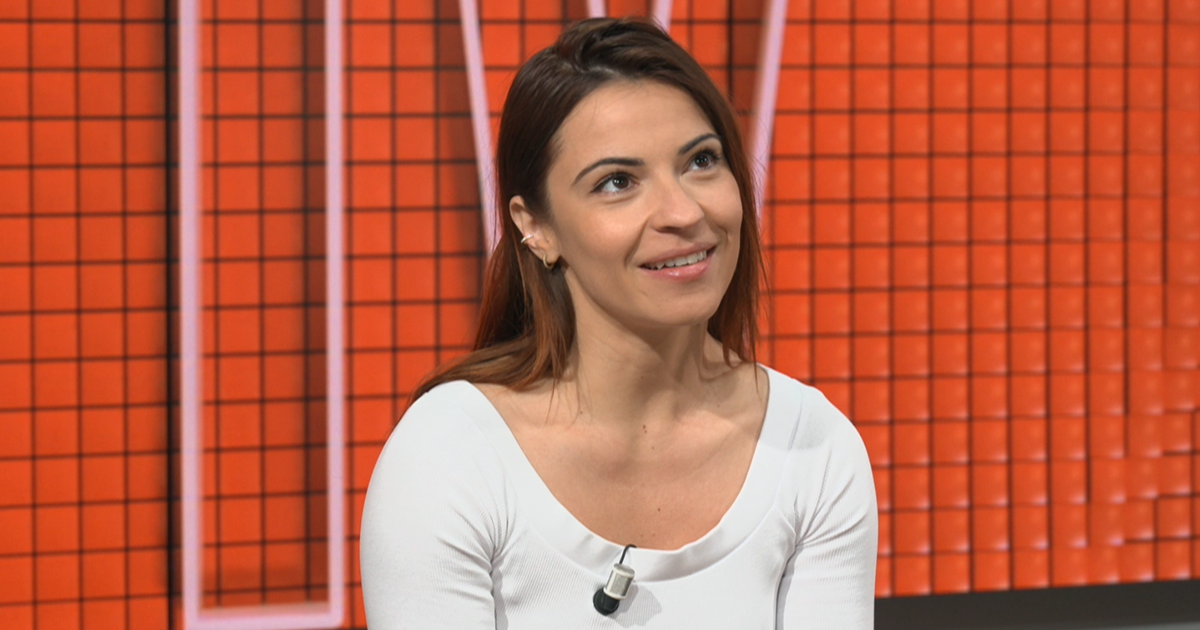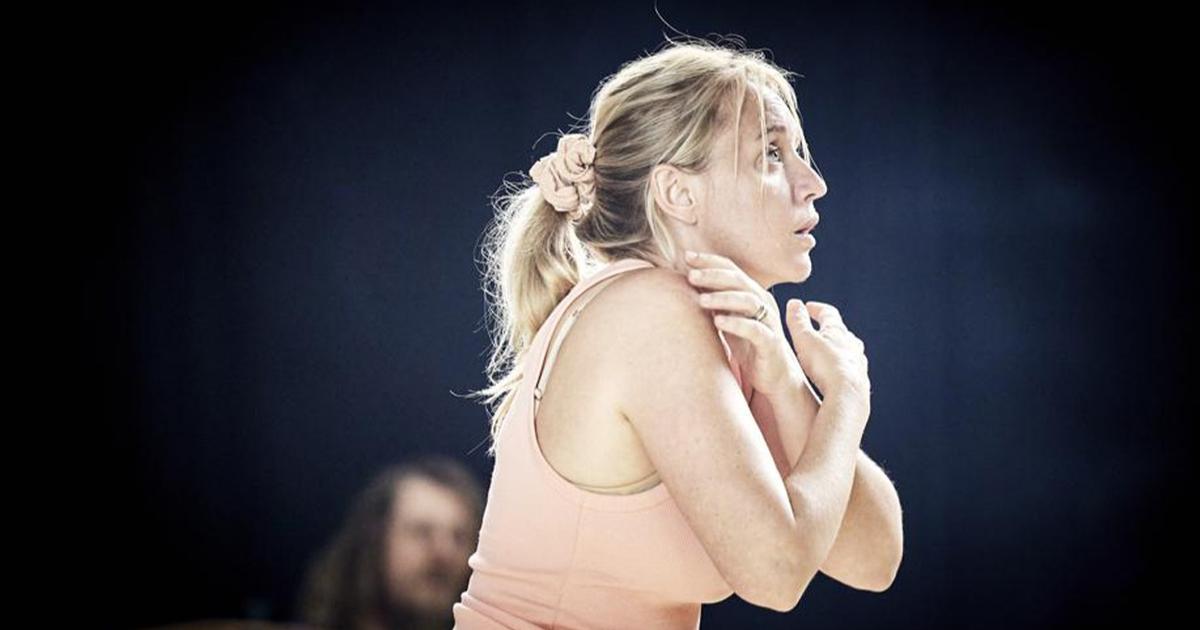I never liked being a girl.
I did not have a happy childhood.
Always, in childhood, I wanted to grow up.
My mother idealized childhood as a space without responsibilities, full of games.
It is true that adult responsibilities overwhelm me.
But I still believe that childhood is a very difficult place to navigate, and what I see today is that age does not improve sensations, fears, trembling, indecision or doubt.
It just gives us some leeway to decide.
That doesn't change it.
look too
The wise phrase of that library
In the previous paragraph, I used the word girl as a general expression for infant.
But it turns out that the gender mark also contributes to my discomfort.
The body that I have, its changes and stages, is a rather inhospitable and threatening place
.
Growing up meant inhabiting it in the midst of all the instabilities that the world provided.
I was and am a shy and lonely person.
However, when you write, you are never really alone.
She is with those to whom she read, and with those who read.
It is like that in all art.
We stop being alone.
And there is a subjective choice in which I can recognize myself.
I choose to write -and read, and listen to music, watch movies, plastic arts, talk about art-.
And so I have made friends, of an astonishingly deep intimacy, even without knowing each other personally.
Correspondence.
The back of a photo that she sent to Rom Freschi one of her friends by letter from her from Japan.
At the age of eight he was already writing with a certain literary aspiration.
She had read almost the entire Billiken collection and several of the Robin Hood and started novels;
I mean, he wrote them without being able to advance the development or give them closure, he started them.
Also, at that age, I started hiding my body.
I remember one fall/winter in gym class at school.
I was wearing a white T-shirt, and when I took off my overalls to go to class,
I saw two triangles sticking out of my chest and hanging from there
.
When I touched myself I realized it was me, and touching me hurt.
The friction with the clothes burned.
Years later, I learned that the so-called breast buds appear two years before menarche, the first menstruation.
At that time, the option was to bend my back for several months, in an impossible crusade to hide those growing promontories, which I saw as deformed, and which also hurt terribly.
Rom Freschi at 16 years old, with an overcoat that covered his forms.
The following year, my mother already bought me a bra.
I remember how hard it was to get used to using it.
She squeezed me, itched me, soon I was too small.
At school, the boys began to realize that some of the girls were already wearing them, so they would pull the elastic on our backs and give us that little lash.
Then they would run away.
Although several of my colleagues were going through the same process, the problem was that mine was undeniable.
I had - and still have - larger than average breasts.
By sixth grade, my body had reached the height I am now
and a very different shape than the world expects the eleven-year-old girl in me to have, playing tag, tag, hide-and-seek, dancing and singing rock songs.
My elementary school was about 15 blocks from my house.
Sometimes I was walking, when we had meetings for group work or just to play.
The neighborhood was quiet, but suburban.
He walked for blocks in which no one crossed.
Or a single person.
Then I started to be afraid of walking down the street alone.
I remember the first time.
A tall gentleman, with long hair and a beard, dressed in a jean jumpsuit and in leather, smoking.
To me he was an old man.
He looked at me and his gaze followed me.
He was walking down the street and I was walking down the sidewalk and when we crossed paths, he told me something that I heard but didn't understand, but he made me hurry up and feel like crying.
"With those tits, he sucked you all off."
Like every girl, I used to play with my mom's makeup.
She still didn't wear glasses and tried the wide shadows of the eighties, the big eyes of Siouxsie, Madonna, Nick Rhodes.
She did it at my house, dressed in shorts and a T-shirt, and if my mom sent me to buy something, she would go out like she was.
One day, the storekeeper's daughter, a girl in her twenties painted like a door, took care of me and told me that it wasn't right for me to come out all daubed, that what did she think I was doing, that they were going to do anything to me.
That day I got emboldened and I answered something like why was she getting involved, that I was playing.
But I began to take care of how to leave the house, and I was afraid for not understanding, nor having been able to ask, what "anything" would be.
Suddenly, on birthdays, which were already beginning to be assaults, and to offer dances, I saw myself surrounded by the birthday boy's older cousins and brothers, who called me stupid things.
Once, in a public pool, I was playing with several unknown boys.
For me it was strange, because I was shy, but also fun, I had not had to get close and I had friends to jump into the pool, chat.
Suddenly, I see her come to my sister saying “But don't they realize that she is eleven years old?”.
The boys left at once, half shocked, saying "But she looks seventeen!"
They didn't let me go to that pool anymore.
My sister was forced to accompany me to the bus stops.
My parents couldn't do it.
One time, a guy touched my boob and ran away.
He was a young boy, with short hair, who came up fast and waved.
My sister ran him and hit him with a flip flop that made him fly
.
She hurt me and embarrassed me so much.
His hand felt like a stain.
The guy was laughing as he ran, as if he had done some feat.
My mother bolted on my fears with minimizing bras resembling iron corsets and oversized ensembles of t-shirts and sweaters.
She had a hard time understanding my body and much more my sexuality.
Other episodes were added that I do not want to tell here but that made me an even more shy and introverted girl.
During elementary school, this clash between playing like a girl and being seen as a woman was a tussle that in high school I watched over with those habits that my mother bought me, plus a dark touch, and the pleated overalls from the school, under which everything that it was my body was hidden in the image of “chubby girl with glasses”.
Meanwhile, the books, my agenda and the walkman were my company.
At school, everyone began dating, discovering their desires, and I felt very different.
A colleague was accused of being "effeminate."
I admired how she defended herself but kept hiding behind her clothes, and wishing to be a little board, like my other companions.
It saddened me not to connect, but
I also wasn't willing to stay in places where I felt uncomfortable
.
The more I read and wrote, the more distance I put between myself and other people.
But I was also building a way out for myself, a way of living, as if I were building a tunnel to escape from a prison.
In the Sí supplement, a column began to appear that was “People who want to correspond”.
And so, in addition to writing for myself, I began to write letters.
The excuse was the music, Duran Duran mostly, some Soda Stereo.
But also, books, poets, or poetic rockers.
In writing there was no pre-established body, there were no models, nor gender or sexual orientation.
Yes, there were ways to put together the phrases, recommendations for records or books or movies, a drawing made for hours for the other.
(I recently changed my signature to Rom Freschi. Much of my earlier work is signed Romina. However, Rom was born in these letters of adolescence, a literary way of hiding the body and not being judged by it. Many friends and writers have They have called Rom throughout these years, much of my work has to do with fluidity and also my militancy. So I thought it necessary to make that self-given name public. I also sometimes sign dragonfly, the way in which I am also invoked. ) Going back, I never met some of my pen friends, since they lived very far away.
I came to have two Japanese friends, with whom we exchanged letters in English and photos, cassettes, objects.
But
I did get to know several, from different points of the same suburb and capital.
One of them was from Bahía Blanca and had come to study in Buenos Aires.
Another turned out to be the daughter of my English teacher at school (I found out by accident).
We were all different, physically, of all colors and sizes, and of different ages, too.
And that was, during adolescence, the containment bar to go out into the world.
With them, I went out on weekends, I went to recitals, art shows, the movies, I even went dancing.
We would dress up in extravagant clothes and paint ourselves and blow up our hair.
We rescued garments from our parents and grandparents, or from American fairs.
Beneath all of that, my body was shaped like clothing.
And also, my hair, which also served to hide me.
That's not why I got rid of several "normal" episodes for the time.
On the train, one came to support me fiercely and pull my pants down a bit in the van and I don't know what would have happened if people hadn't gotten on at the next station.
Another started masturbating in front of a friend and me.
Countless touches of legs, buttocks and vulva when getting off the bus.
But there was a way out.
Writing, music and friendship were.
And the collective strategies: going in a group, waiting for us at the bus stop, carrying the keys in our hands so we could hit harder if someone attacked us, staying the night at someone's house, if it was getting too late.
Keep writing letters to each other even though we could see each other on the weekend.
With one of my pen pals we started college together.
I did not continue, I changed to Letters.
At that point I no longer started pen friends and university life led me to meet people in a more personal way, although already directly related to literature.
My other friends also followed their respective paths: music, art, graphic design, journalism.
Many migrated, as if our way out of adolescence through letters
had also been a way of pulling a rope to climb the world.
Personally, that way of relationships, written, made it possible for me to make that passage from childhood through adolescence to youth.
That I survived.
The discomfort with the body does not go away.
But in that writing space another way of being with others appeared, which gives the body time to get to know itself.
Today I know that the discomfort does not go away.
Perimenopause is looming and it is a transformation as massive as the previous ones: swelling, hot flashes, pimples again, and the gaze of others putting me in the marginal place of the ladies.
But in writing I keep giving myself time.
And I can say this, that it is trivial -because it is common- that I see how it happens to everyone, whether or not they have "Renaissance" bodies, and that it is still tragic.
In 2018, I wrote a poem called “Fallo”, about the first ruling in the case of Lucía Pérez (which was declared null and now there is a new one).
In that legal brief, aberrational things were said, such as that Lucía, despite her age, had the ability to deny or avoid what was happening to her.
A girl or an adolescent cannot deal with what happens to her around the image that others have of her body or her behavior.
She doesn't stop being a girl.
Hiding as I did, in writing, does not stop leaving traces.
I feel the need to say this to change the way I look at children, adolescents, women, and everyone.
That the look is not one more tax.
-----------
Rom Freschi.
Mostly poet.
Sometimes performer.
He started publishing poetry in the 90s. He was part of the group Zapatos Rojos.
In 2022, the last book of his poems was published, “El Precedente”, which has just been presented, and two of his previous collections of poems were reissued: “Juntas”, with drawings by his daughter, and his his first book, “Redondel”.
He is fascinated by the essay genre, which is why he created and directed the magazine "Plebella", which today maintains an afterlife in networks.
She is a teacher and researcher in university and creative fields.
She militates feminism, the baroque, and defends animals.
Her poem "Fallo" had several publications since 2018, the most recent being this year in "Luvina", the literary magazine of the University of Guadalajara in Mexico.
--------------
Inclusive.
At Clarín we do not habitually use inclusive language.
In this text, the author believes that she defines her, so we have respected her original writing.
As she tells us: “I choose what is commonly called inclusive language as a way of being in feminism.
From poetry, moreover, it seems to me that it grants amazing expressive possibilities”.
And about the name, she mentions in the text that “I recently changed my signature to Rom Freschi.
Much of my earlier work is signed Romina.
However, Rom was born in these letters of adolescence, a literary way of hiding the body and not being judged by it.









/cloudfront-eu-central-1.images.arcpublishing.com/prisa/YYFLACLTQBGVXLURCA34LLTDVU.jpg)





